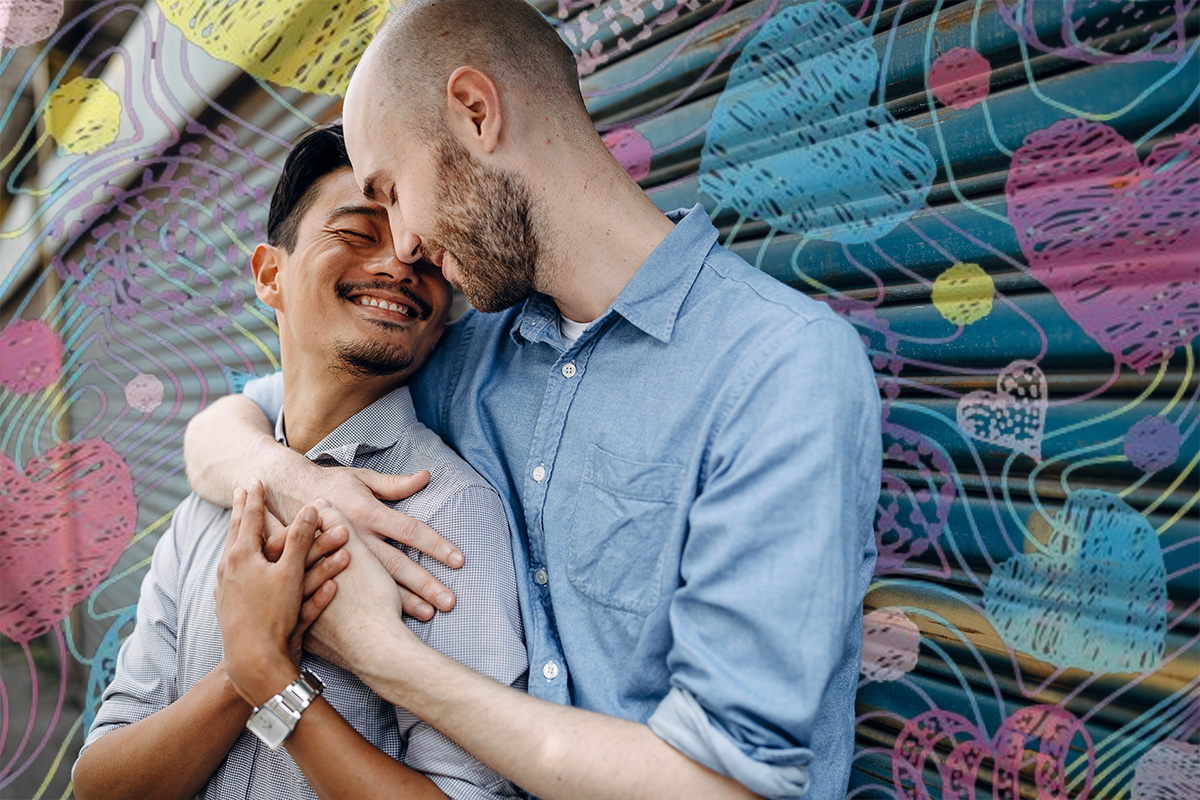By: Jennifer McMillen Smith, LISW-S, HIV Social Worker at MetroHealth Medical Center and medically reviewed by Ann K. Avery, MD, Infectious Disease Physician at MetroHealth Medical Center
Ever felt like you’re tangled in a web of emotions, trying to figure out whether it’s genuine love or just attachment? 🌟 It’s easy to confuse the two, especially when both feel intense and consuming. Understanding attachment vs. love can help you build healthier, more fulfilling relationships. Follow along to learn how to recognize these emotions, and make sure your connections are based on true love, not just attachment.
What is attachment? 🤔
Attachment often comes from a need for security and comfort. It’s the feeling you get when you rely on someone to fulfill your emotional needs. Attachment can make you feel safe and connected, but it can also lead to dependency. You might find yourself clinging to the relationship out of fear of being alone. 😨
Attachment is not automatically bad; it's natural to form bonds. But when attachment overshadows love, it can lead to unhealthy patterns. Signs of attachment include jealousy, possessiveness, and a constant need for reassurance. You might feel anxious when your partner is not around or worry excessively about losing them.
What is love? 💖
Love, on the other hand, is about giving and sharing without expecting anything in return. It’s a selfless, unconditional feeling that grows from mutual respect, trust, and understanding. Love encourages independence and supports each person’s growth. It’s about wanting the best for someone, even if it means letting them go. 👋
When you love someone, you appreciate them for who they are, not what they provide. Love fosters a sense of freedom and happiness. It’s built on open communication, trust, and a deep emotional connection. In a loving relationship, both partners feel valued and respected.
How to spot the difference: attachment vs love 🕵️♀️
- Dependence vs independence: Attachment often involves dependence. You rely heavily on the other person for emotional stability and might feel incomplete without them. Love, however, celebrates independence. Both partners maintain their individuality and support each other’s personal growth. 🤗
- Fear vs. trust: Attachment is often driven by fear –losing the person, being alone, or fear of not being good enough. Love, on the other hand, is rooted in trust. You feel secure in the relationship and trust your partner completely. 👍
- Possessiveness vs freedom: When you’re attached, you might feel possessive and want to control your partner’s actions. Love gives your partner the freedom to be themselves. You respect their space and encourage them to pursue their passions and interests. 🎨
- Anxiety vs. peace: Attachment can lead to anxiety and constant worry about the relationship. You might overthink your partner’s actions and seek constant validation. Love brings a sense of peace and contentment. You feel calm and reassured, knowing that your relationship is strong. 🕊️
- Conditional vs unconditional: Attachment often comes with conditions. You might feel loved only when your partner meets certain expectations. Love, however, is unconditional. You accept your partner as they are, without trying to change them or expecting anything in return. 👏
The role of self-awareness and growth 🪞
Understanding attachment and love is more than just recognizing feelings; it’s about self-awareness and personal growth. Start by reflecting on your own needs and behaviors in relationships. Ask yourself why you feel a certain way and what drives your emotional responses. Are you seeking validation? Or are you genuinely invested in your partner’s well-being? 🤔
Personal growth plays a significant role in fostering genuine love. By focusing on self-improvement and emotional health, you can develop a deeper understanding of what love truly means. Engaging in activities that enhance your self-esteem and mental well-being will help you approach relationships from a place of strength and confidence. 🏃
Building healthy relationships 💪❤️
Understanding the difference between attachment and love is crucial for building healthy relationships. Here are a few tips to foster love over attachment:
- 🗣 Communicate openly: Share your feelings and listen to your partner. Honest communication builds trust and understanding.
- 👋 Encourage independence: Support each other’s goals and interests. Healthy relationships thrive on mutual growth.
- 💗 Practice self-love: Take care of yourself and your own needs. When you love yourself, you’re better equipped to love others.
- 🧱 Set boundaries: Respect each other’s space and boundaries. Boundaries are essential for maintaining a healthy balance.
- ⏳ Focus on quality time: Spend meaningful time together, creating memories and deepening your connection.
Knowing is the first step 🧠
Understanding "attachment vs love" can transform your relationships, making them more fulfilling and joyful. At Positive Peers, we’re here to support you on your journey to healthier connections. Our app offers resources, support groups, and a community to help you navigate relationships and emotional well-being.
Download the Positive Peers app today and join a community that’s dedicated to helping you build strong, loving relationships. 🌈📲
